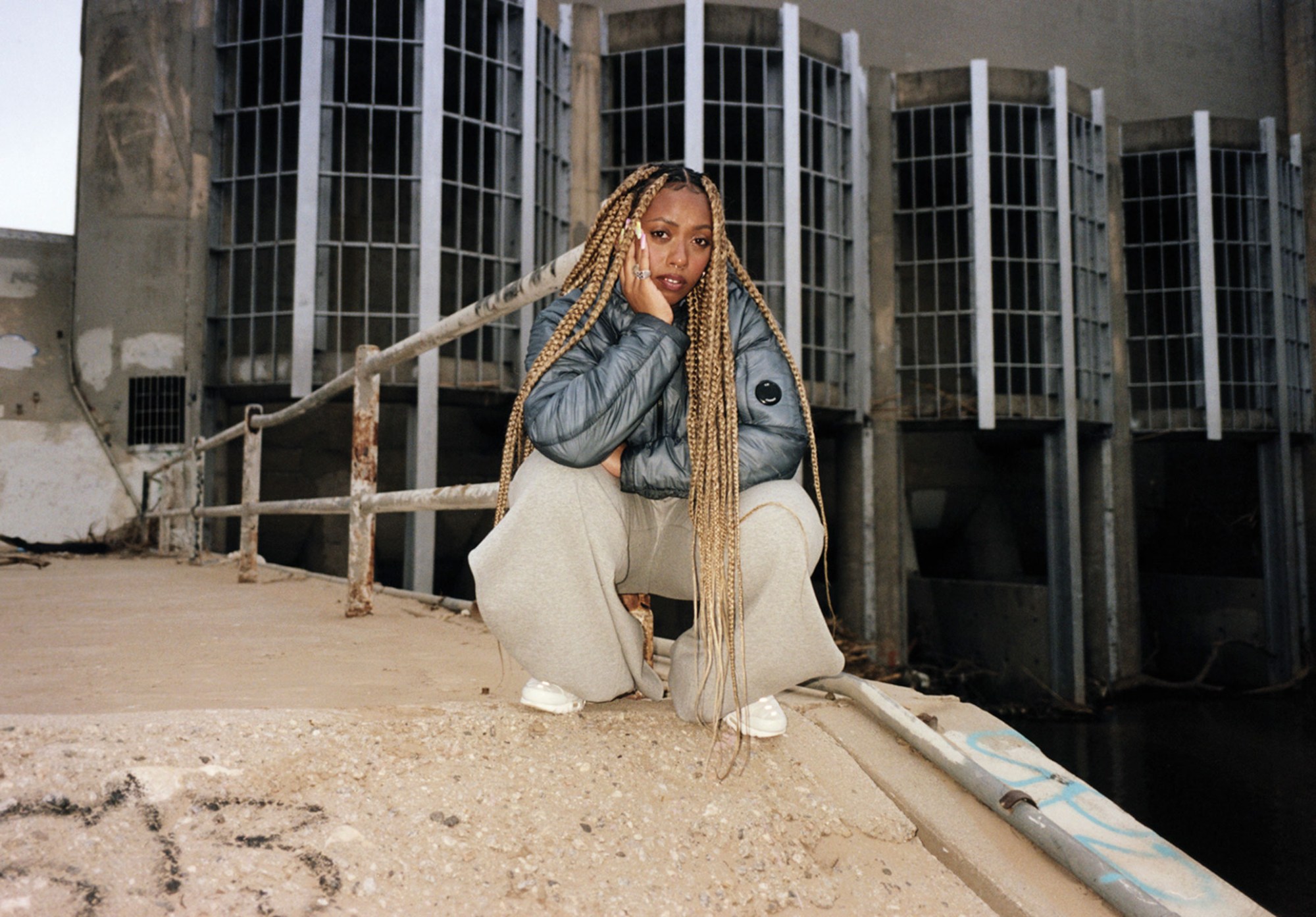This story originally appeared in i-D’s The Summer! Issue, no. 372, Summer 2023. Order your copy here.
It’s morning in Los Angeles and Nia Archives is planning a trip to Universal Studios. It’s one of the few days off the British singer, songwriter, producer and DJ will have had since her music career skyrocketed last year. “I just really want to ride a rollercoaster today,” she tells me over FaceTime in her broad Midlands accent, “or maybe I’ll get a tattoo. It’s always work work work, so I’m trying to have some fun.”
23-year-old Nia is in town for the same reason a slew of other talent has descended upon California in mid-April: Coachella. A few days ago, the jungle artist played her first of two sets, an experience she describes as “kind of a culture shock” which, considering she’s toured extensively through Europe, Australia and America, is saying something. “Everyone just looked so fresh!” she says, shaking her head in disbelief at the contrast to the frenetic, euphoria-inducing dance parties on her home turf. “UK crowds are a bit crazier.” Nia was accompanied by a new, hyper-colourful visual for the occasion: a 3D model of her face partially obscured by her favourite C.P. Company goggle jacket, spliced with 90s rave footage. A packed tent of fans – their energy almost matching her own, her long braids swinging as she danced behind the decks – confirmed that the revival of drum & bass and jungle has well and truly broached the US.
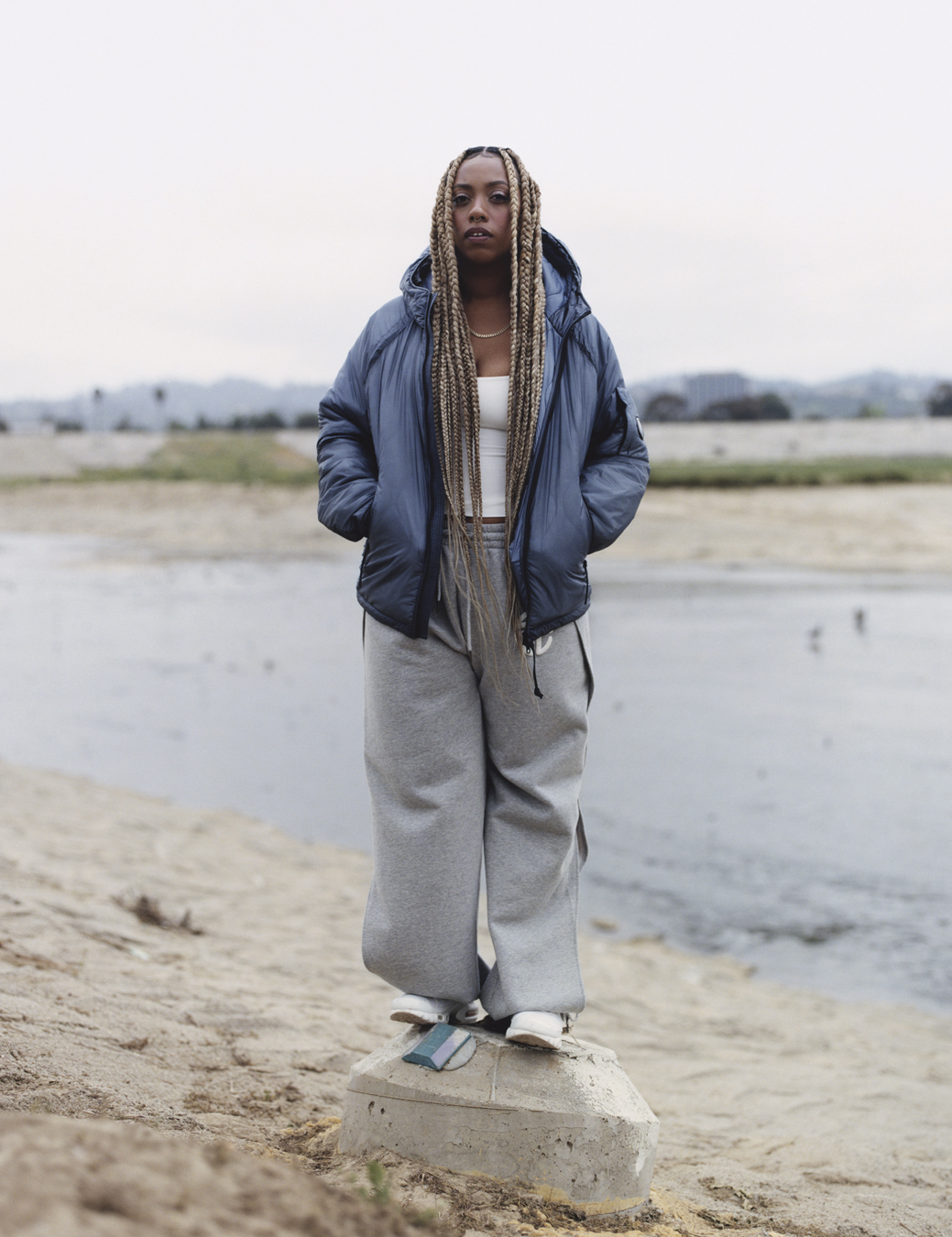
Nia Archives, for the uninitiated, is at the centre of the aforementioned dance music renaissance. Since the release of her more vocal-heavy debut project Headz Gone West in 2021, she’s continued to build her young, ever-curious fanbase. Her six-track Forbidden Feelingz EP that followed in 2022 was “a full club project made for sound systems,” as well as proof, to herself, that she doesn’t need to rely on her voice to make music. The EP’s title track, with over twenty-one million Spotify streams, transports listeners straight to a Nia Archives set, where it’s still a fan favourite.
Her latest EP, Sunrise Bang Ur Head Against Tha Wall, was released this spring to critical acclaim: dancefloor-ready productions laced with emotional, candid lyrics about codependent relationships, estrangement from her family and the duality of a comedown. The latter is explored on the
title track, a hazy breakbeat number peppered with Nia’s infectious laughter, nonsense post-club chats and an ASMR-triggering touch of vinyl crackle. “It’s about that feeling when you’ve been out all night at a rave and you end up in someone’s kitchen and the sun’s coming up; it’s disgusting but beautiful,” she says. “It’s a feeling I’ve had a lot of times.” Other stand-outs are the Brazilian choir-sampling Baianá and BBC Radio 1 A-Listed, indie-infused So Tell Me… of which, somewhat bizarrely, Elton John is a fan. When the icon invited Nia onto his Rocket Hour Apple Music show in early April, he showered her with his approval: “You’re not making music that any other person is making and that makes you unique,” he told a beaming Nia. “And that’s hard to find in this day and age!”

In an insanely short space of time, Nia has bagged herself a major label record deal and a shelf full of awards: a MOBO Award; an NME Award; a spot in the BBC’s annual Sound poll; and a nomination for the prestigious Brits Rising Star award, whose previous winners include i-D cover stars past and present Jorja Smith and Adele. Nia has also started up her own touring club night, Up Ya Archives, a safe, inclusive and celebratory space that she hails the “new gen junglist experience”. It’s also the vehicle for her live show: an elevated DJ set throughout which she weaves performances of her biggest singles like surprise hits of dopamine you can sing along to. With proven success at provoking hundreds, if not thousands of bodies to skank, sweat, and swear allegiance, her music is undoubtedly best experienced live.
The Yorkshire to Coachella pipeline has been an unlikely one. Accepting her iconic middle finger trophy for Best Producer at the NME Awards last September, Nia dedicated the win to her sixteen-year-old brother: “It doesn’t matter who your parents are, it doesn’t matter where you come from, you can do what you want with your life and you can make something of yourself,” she yelled down the mic, flustered but brilliant. She later described the impassioned moment as the first time in a long time she felt she was truly living, not just surviving.
Born in Bradford, Nia left school and home at sixteen and moved to Manchester, where she threw herself into the local party scene. “I didn’t know anyone, so my way of making friends was through going to house parties and raves. I got obsessed with nightlife, clubbing, getting off of it, you know?” she says with a laugh. “I went to this Jamaican Pentecostal church as a child with my Nana and used to think I loved it, but this made me realise that what I actually loved was the music. I got the same feeling when I went out; just being surrounded by sound, feeling like a part of something.”
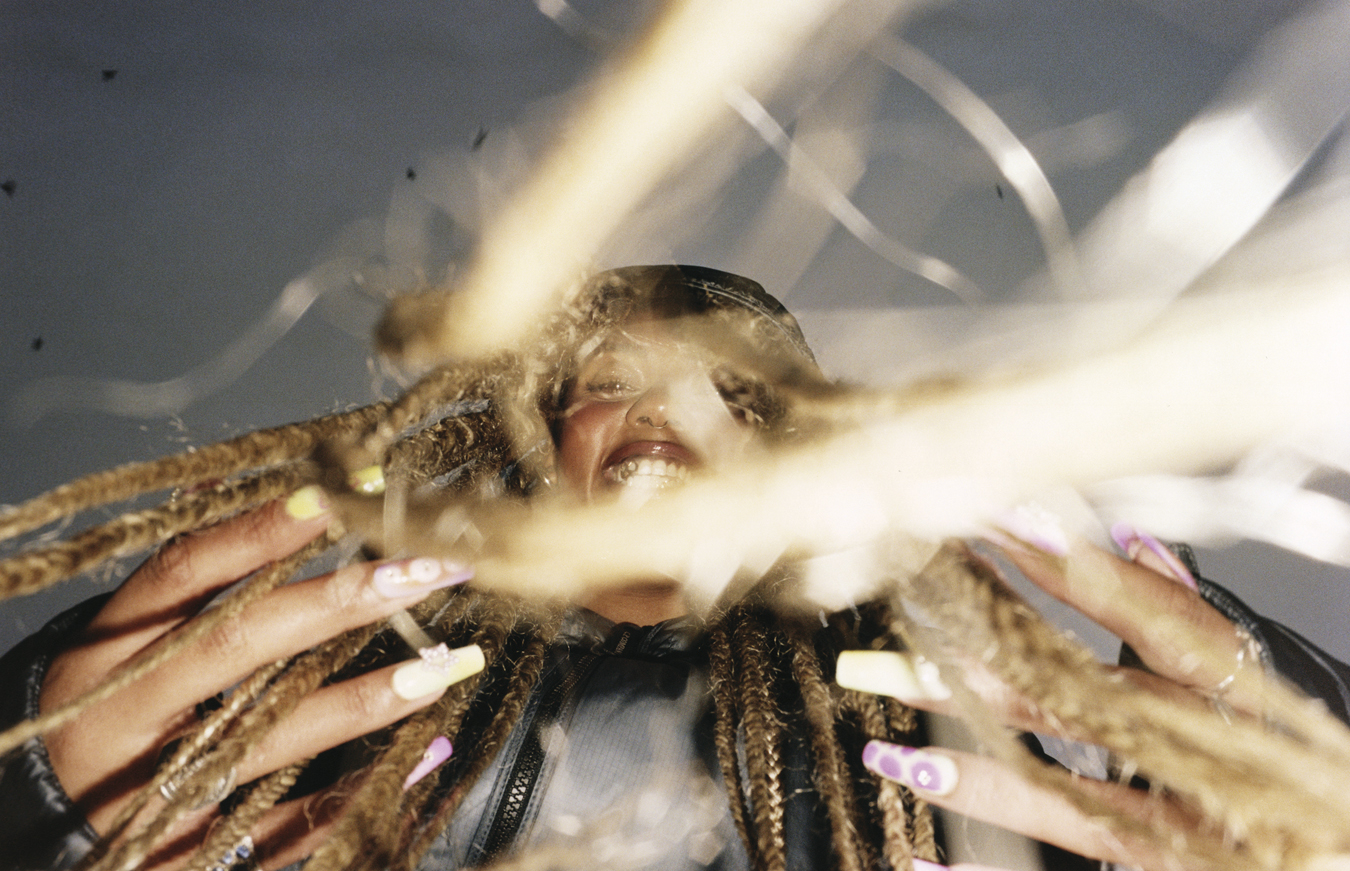
Striving for more of that soul-stirring is what prompted Nia to take the production baby steps she was making at the time with a cracked copy of Logic. “I used music as therapy,” she reflects. “I’m not very good with emotions, so music was my outlet.” Dabbling in genres, Nia was making “really sad, depressing music” that typically landed somewhere in the realm of boom-bap, until something shifted within her. “I realised I don’t wanna cry to my music; I wanna dance to it. So I double-timed the tempo to 160/170 bpm and fell into jungle,” she explains of the moment that ultimately shaped her career. “I think my accidental formula is sad lyrics on fast beats; it disguises the sadness.”
After a stint working 60-hour weeks at a Manchester KFC to facilitate the move, Nia relocated to London in 2019 to attend a music college that accepted her based on talent alone. “Suddenly I had a student loan, so I could pay my rent and do music full-time, which was crazy to me,” she recounts. Several glorious months of immersing herself in her new genre of choice, of discovering the jungle community, were brought to a depressing halt as the coronavirus pandemic shut down clubs and ultimately the world. “I was going to events like Rupture and Alchemy and was like, ‘oh my God, I’m obsessed with this!’” she says. “And then I spent a year stuck in a small room.” But that tiny taste of the scene and what her path in music could look like motivated Nia beyond belief.
Locked down in her room with all the time in the world to play records, Nia’s day-to-day echoed treasured childhood memories with her Nana. “We used to sit on her bed and listen to all these CDs together on her sound system,” she says. “My Nana has had a huge impact on me musically. She loves jungle, Afrobeats, disco, soul and rare groove. Her and my Auntie have a show on their local Bradford radio station to this day. I remember going along after school once and she was asking me about my day live on air.” Nia’s Nana moved to Bradford from Jamaica in the 70s when she was fourteen. Despite encountering racist attitudes, she and her four sisters became pillars of the community, starting up a Saturday school at MAPA, their local West Indian Community Centre, and teaching Black history.
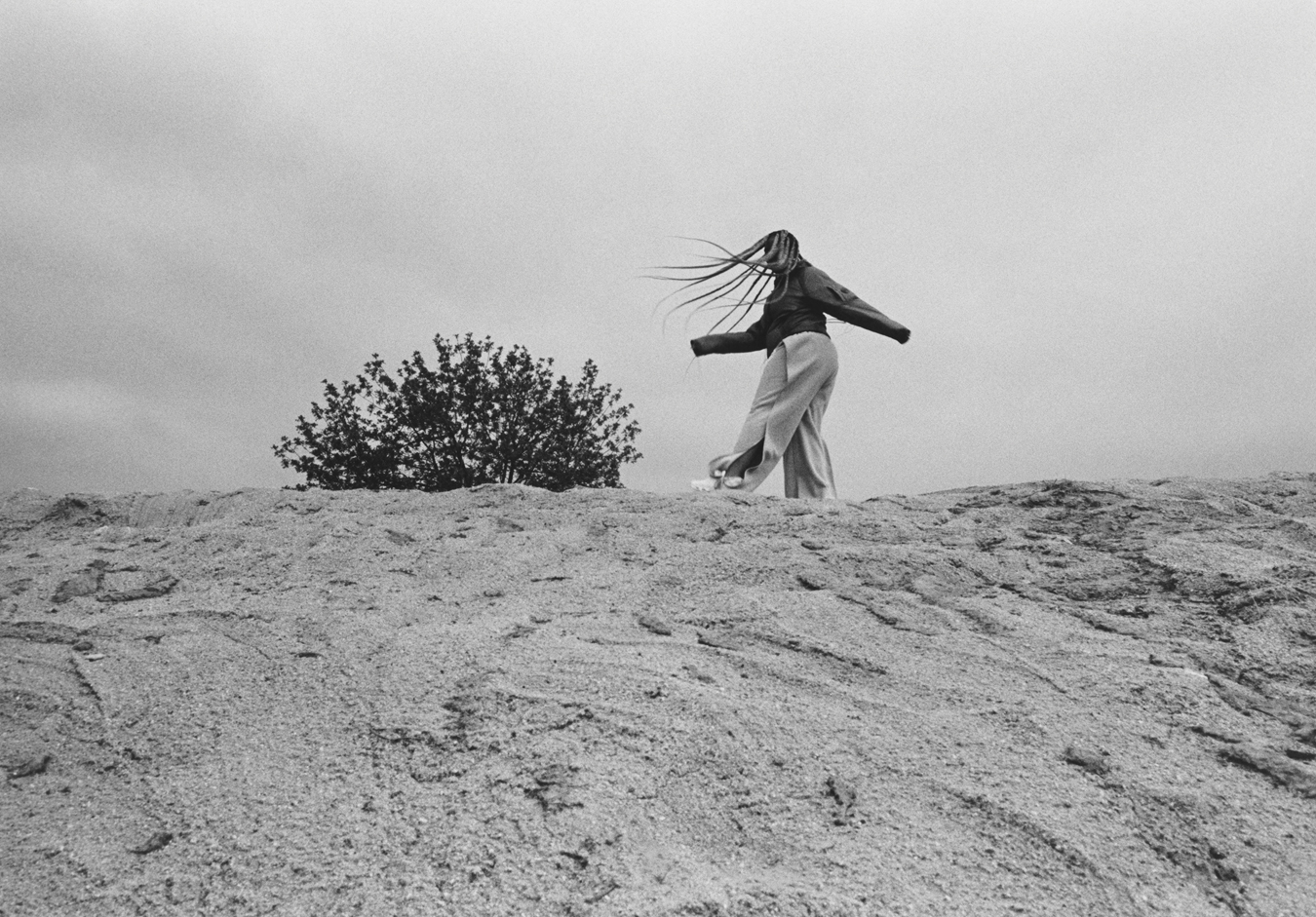
“I spent so much of my childhood there,” she says. “I’d go every weekend and learn about my culture.” In January, Nia visited Jamaica for the first time – a pilgrimage she’d been dreaming of making for years. “It was so emotional, in a really good way,” she says. “I felt like I understood my family a lot more, myself too. I felt really at home.”
Nia’s studious approach to her ancestry is one she also applies to the history of jungle: always sure to reference and give credit to the originators of the scene. “It’s so important to me to honour the people who created the sound that I love; to give them their flowers,” she says. “My favourite jungle era is 1992-1996; they made the most amazing futuristic music with such limited resources. I’m so inspired by them and so thankful that I get to build a network with the artists that I look up to.”
Nia is referring to scene pioneers like Goldie, Flight and Storm, all of whom she has close relationships with. “I literally fangirl at all of them, it’s so ridiculous,” she laughs. “I consider Flight a friend and older sister now, but I’m still like, ‘oh my God, that’s DJ Flight!’ For me, as a dual-heritage woman, seeing someone like her doing what she does… she’s just so bold and fearless.” Nia was introduced to Flight three years ago as part of a mentorship with EQ50, a collective working towards fairer representation for women and non-binary people in electronic music. They’ve since collaborated on podcasts, behind the decks and gone in conversation for Apple Music.
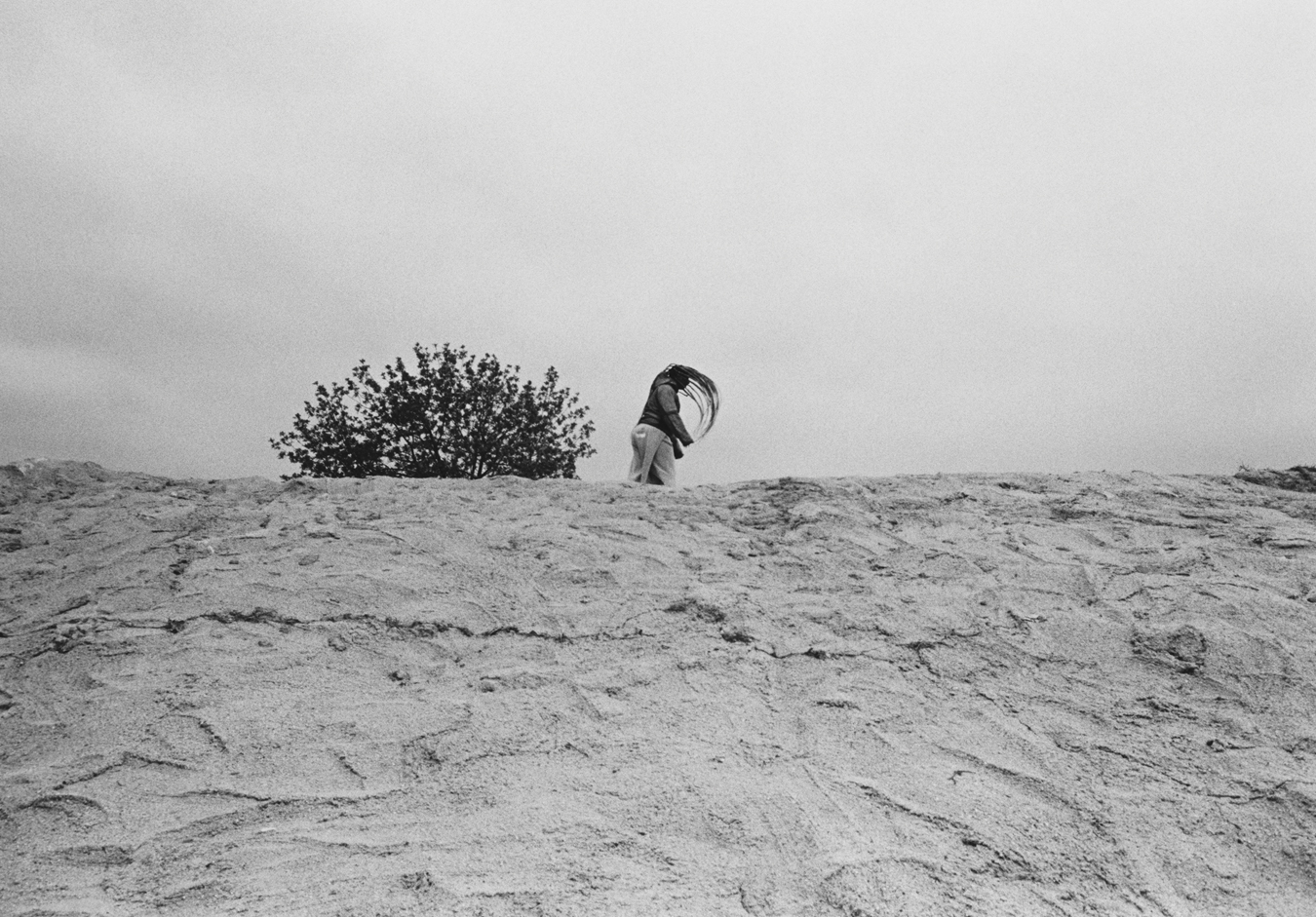
DJ Storm, too, holds a special place in Nia’s heart. “Her and Kemistry were so iconic, as women in the scene but also just generally,” she gushes. “They introduced Goldie to jungle and they were a huge part of Metalheadz, which no one really speaks about.” As for meeting and striking up a friendship with Goldie, Nia describes the whole thing as a whirlwind. “He sent me a video of him on his motorbike like, ‘Babes! Come to Thailand! I’ve got you!’ and sometimes he just rings me up for a chat and it’s like, ‘what the hell? Goldie’s ringing me! What is going on?’” Clearly seeing something special in Nia and the fresh approach she’s bringing to their world, these legends in the game seem determined to help nurture her talent. “They’ve all been so supportive and it’s been so cool to hear their stories; I’m just soaking up all the information I can get, you know?”
When it comes to the commercial embrace of the scene, Nia has mixed feelings. “It’s always been underground,” she explains. “But now there are a lot of people singing on pop versions of jungle and drum & bass, which is definitely what’s making it more mainstream.” Indeed, young artists like the UK’s PinkPantheress and piri are part of that movement, embracing vintage club sounds and packaging them neatly for TikTok. “I don’t think it’s a bad thing because it just brings more attention to the people that created the genres initially – but only if you shout them out,” Nia notes. “If you don’t, it erases a lot of the history, Black history in particular, which happens a lot with dance music.” What sets Nia apart, then, is this dedication to the origin of her craft – something that’s evident across her co-signs, her attitude and even her sound: she understands the classic formula, references the greats, but makes it very much her own. It’s why she also appeals to the OG junglists that flood the comments under her music videos, hailing her as the reincarnation of their favourite 90s artists.
Nia is obsessed, she says, with diversifying the scene, by seeing more young Black women at raves. It’s why she started Up Ya Archives in the first place, to recreate the space that jungle provided back in the day. “I’m kind of seeing it already, if I’m honest with you,” she says. “It’s so wild. I just did a small tour of the UK and Europe and it was crazy the number of women at these dances – it was like 80-85 percent women, which you just don’t normally see. I think dance music can feel unsafe sometimes for women, but Up Ya Archives has created this really safe space. The parties attract such a cool, open, understanding and mixed crowd and everyone’s just there to have fun.”
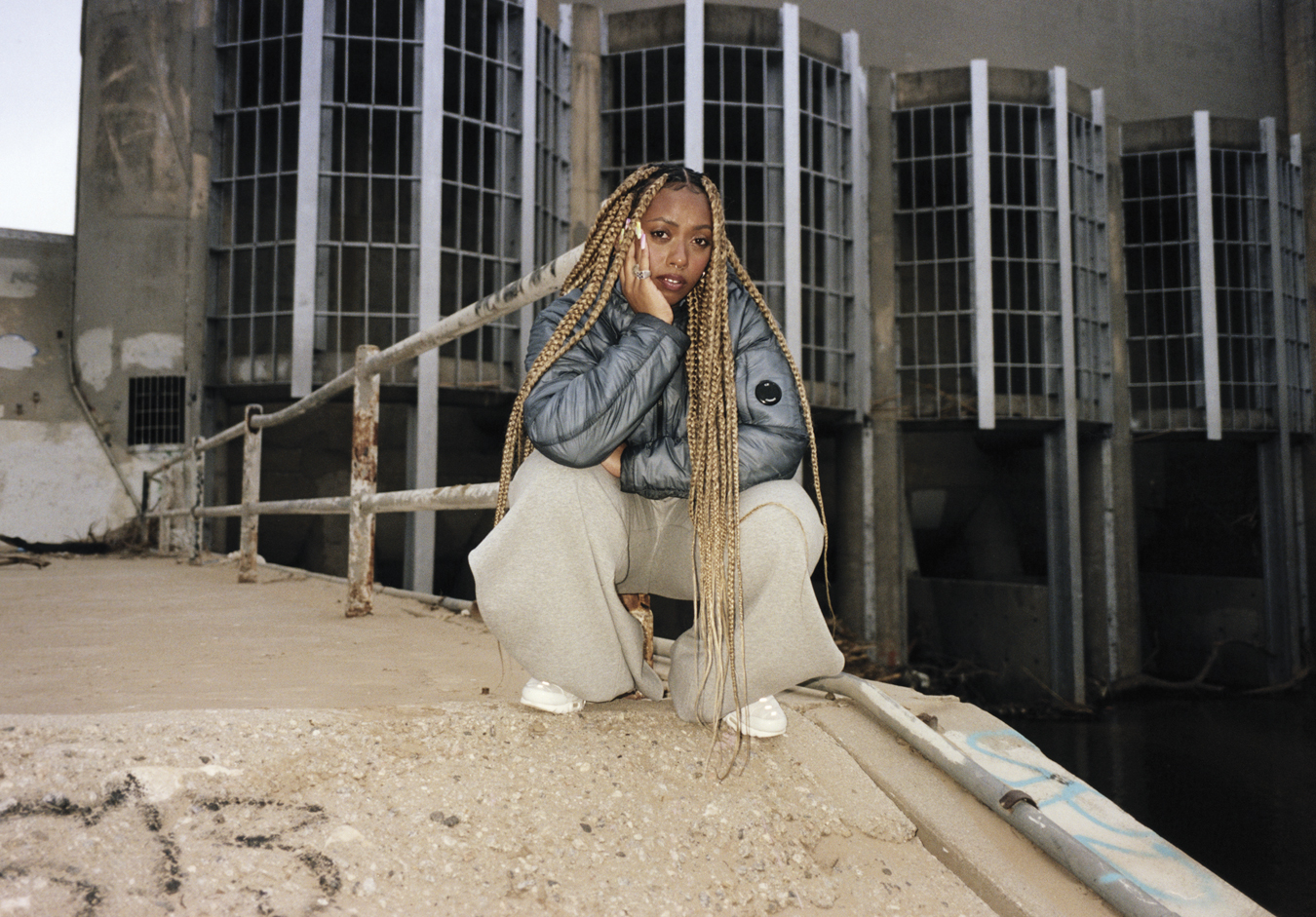
Having built up the kind of community she wants at her shows, Nia’s attention has turned to the next generation of artists. “I’d love more Black women to get into DJing dance music, something that will hopefully come from people like Sherelle, Flight, Sheba Q and myself being that representation and showing people that it’s not a big deal; that they can do it too,” she says. She also has ambitions of following in her Nana’s footsteps and growing Up Ya Archives into a youth service providing creative workshops and guidance to young people in the North of England. “I’m realising how many creative opportunities there are for young people in London. I’d love to give that same support to people that don’t have those connections. It’s something I’m really passionate about.”
In the meantime, though, Nia has a US tour to finish and a long run of European summer festivals to get through. Then it’s album time. “I want it to be Sunrise Bang Ur Head Against Tha Wall on steroids,” she says of the forthcoming record. “I want it to be so real and raw – there’s so much of my story that I haven’t shared with the world yet, and I’m getting to the point in my life where I just want to be honest.” The project, she says, will see her continue to work elements of other genres into her staple sound. “You can put almost anything on a breakbeat and it’s jungle; you can go in so many different directions to the extent that you’ve almost created new genres. It’s really exciting for me to see where this all goes; see how I can keep pushing the sound forward.” Though that kind of expectation must weigh heavy on Nia, she’s forever looking to the future, barely stopping to reflect on all she’s already achieved. “I haven’t really processed a lot of things I probably should’ve; I’ve just been like: next next next, keep it moving!” she says. “I do deep it sometimes, you know, where I’ve come from to where I am now; everything I’ve been through to get to this point. It’s mad. I’m very much living the dream.”
Credits
Photography A. Kircher
Fashion Tamia Mathis
Hair Maliyah Puerto using Knottas
Make-up Esther Foster using Shiseido and IS Clinical
